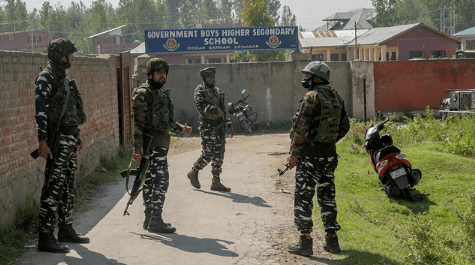
Expose terror links
The nationwide crackdown on the Popular Front of India (PFI) has turned the spotlight on the radical Islamic outfit responsible for several violent attacks, indoctrination, armed training and funding terrorist activities. Though the organisation has an explicitly toxic agenda and a history of carrying out political murders, the previous attempts at prosecuting its leaders did not succeed. Instead, they went on to acquire a halo of victimhood and attracted more supporters to their jihadist ideology. The National Investigation Agency (NIA), which recently conducted a series of searches and raids at various locations spread over 11 States in collaboration with the Enforcement Directorate (ED) and arrested several PFI leaders, needs to unearth credible evidence to blow the lid and explore the nefarious activities of the organisation. Fighting the PFI’s brand of hate politics requires a nuanced political response as it not only poses a security threat but also throws a political challenge. The outfit had shot into prominence more than a decade ago when its operatives chopped off the hand of a Kerala professor TJ Joseph holding him guilty of insulting Prophet Mohammad. This act of violent fanaticism destroyed not just this teacher’s hand but his life — he lost his job and his wife killed herself because of constant threats from the Jihadi elements. This incident has reinforced the perception of the PFI as a group that sees violence as a tool to push its polarising political agenda and its fanatical interpretation of Islam. In May this year, the Kerala High Court observed that the PFI and its affiliate Social Democratic Party of India were “extremist organisations” but not banned.
The PFI emerged from a radical strand in Muslim politics that found resonance within a section of the community after the demolition of Babri Masjid in 1992 and the rise of Hindutva politics. It was also influenced by ideas of political Islam that gained ground after the Iranian revolution in the late 1970s. When the Students Islamic Movement of India (SIMI), the prominent exponent of this politics, was banned, new groups emerged. These outfits ostensibly articulated their politics through the prism of rights guaranteed by the Constitution but their work often violated the norms of legitimate political action. The PFI also came under the scrutiny of various Central and State agencies in connection with the alleged ‘Love Jihad’ incidents in Kerala, forced conversion of people belonging to other faiths and disappearance of some people from the State to join the Islamic State in Afghanistan and Syria. The PFI activists and their allied organisations were also arrested for the killings of RSS-BJP leaders in Kerala in recent months. The fundraising activities of the PFI are also being investigated by Central agencies like the ED and Income Tax Department. The PFI taps into public resentment to earn political legitimacy.
Source: Telangana Today





